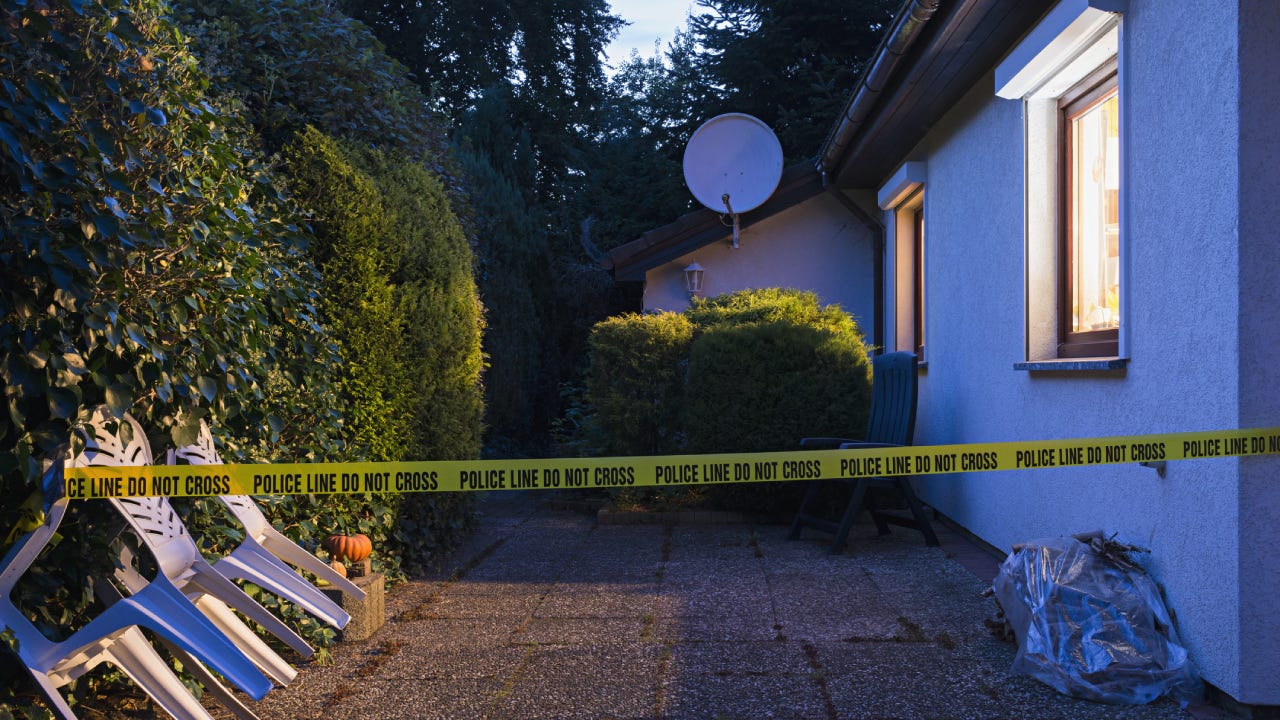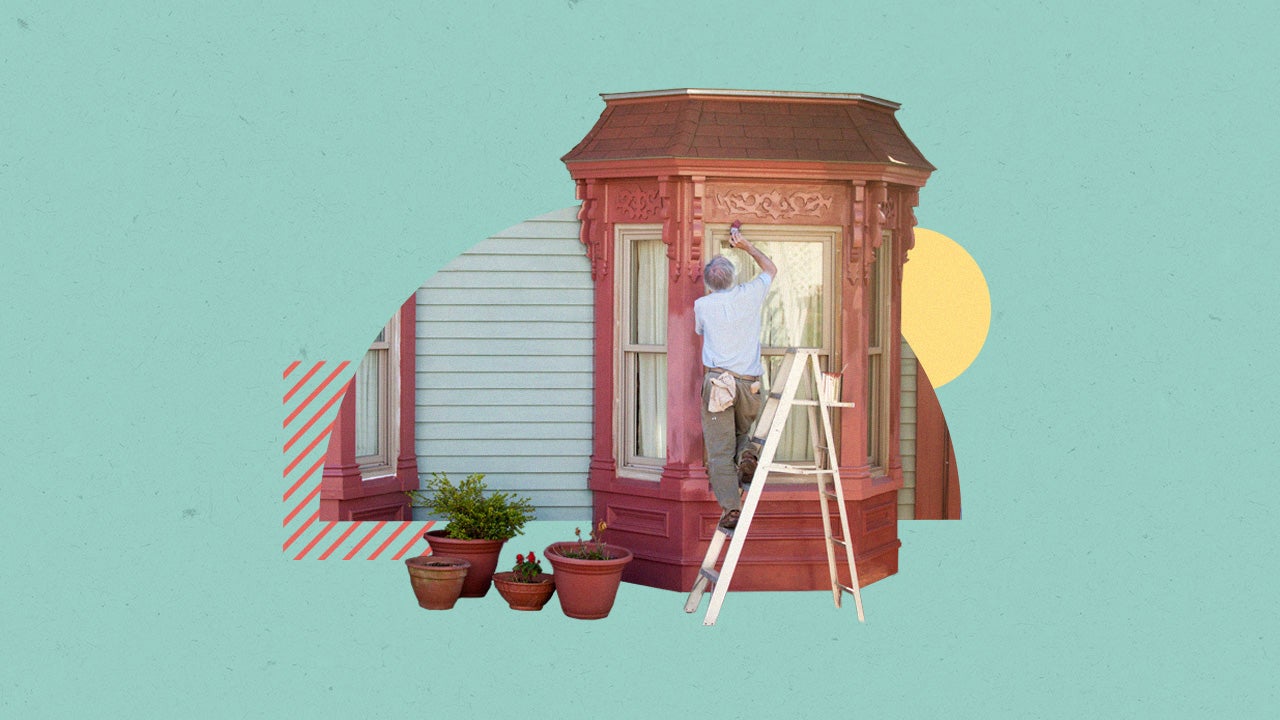What is stigmatized property?



Key takeaways
- A stigmatized property is one that has been negatively impacted by a traumatic event psychologically — not physically.
- A property might be stigmatized for various reasons, like a history of criminal activity, homicide or paranormal activity.
- Since nothing is physically wrong with stigmatized property, and they might be discounted, they might be a good prospect for first-time homebuyers.
A stigmatized property is one that’s been psychologically impacted by a traumatic event in the home, like a murder, suicide, drug production, or paranormal activity. The negative perception of these scenarios can scare off potential buyers from a stigmatized home, so sellers may be more willing to negotiate, especially if the stigma is damaging the home’s property value. Since not all sellers are required to disclose, you may want to ask a seller’s agent about a home’s history if you’re at all concerned about the property’s past.
What is stigmatized property?
You may have heard of “stigmatized property,” meaning generally that the property has a negative psychological reputation tied to it. The National Association of Realtors describes stigmatized property as property that’s been negatively associated with a psychologically traumatic event. This label can deter potential buyers from purchasing the home even though the stigmatized nature of the property does not indicate anything physically wrong with it.
The definition may seem vague, but that can be the trouble with stigmatized property. Although these houses may be in good condition both before and following the event, their bad reputation can scare off many potential homebuyers. It comes down to how people perceive the house because of something that happened in it.
That could mean the previous owners were engaged in criminal activities, there was a murder in the house or the home has a history of paranormal activity. So, if you are a potential buyer and can overlook negative connotations, a stigmatized property can often be a good deal, especially for first-time homebuyers or others who want a budget-friendly house. But there are a few things to consider before you take the plunge.
Stigmatized property types
Often, the stigma associated with a home will be as unique as the house itself. Additionally, people view stigmas differently. An alleged haunted house might not bother everyone, but a history of criminal activities could mean the house gets some unsavory individuals dropping by. Ultimately, what you need to consider before your stigmatized property search depends on your tolerance for potential issues and the stigma at hand.
Abandoned and vacant stigma
The National Association of Realtors reports that 1.4 percent of U.S. properties are vacant or abandoned. If the home has been sitting vacant for a considerable amount of time, it could deter potential buyers from the property itself as well as the neighborhood. Since the home has been unoccupied, there may be rodent or pest issues that need to be dealt with. However, homebuyers who enjoy home improvement projects may be able to luck out on a good deal for the property.
Haunted or paranormal activity stigma
While some people might be understandably scared off by unexplained noises, furniture movement or temperature fluctuations, others might see this as a perk. Because paranormal activity does not count as what real estate agents call “material fact,” this stigma often does not show up on traditional real estate disclosures. You will typically need to ask the previous owners via their agent and hope for transparency to find out if any haunted activity was experienced in the home.
Public criminal activity stigma
Whether the home was known for illegal activities like drug dealing or prostitution, or for being a sex offender’s residence, the odds are high that public perception of the property has been impacted. As a result, criminally stigmatized property might be a good deal, but could come with some serious downsides. Beyond the perception from neighbors, there is a chance that people still visit the house to participate in said criminal activities, not realizing the property is under new ownership. Location in a neighborhood with a high crime rate is one of the factors that can make your home insurance more expensive.
Death stigma
In most cases, a natural death in a home is not enough to create a stigma — although a body going undiscovered for a long period of time could be another story. However, if the death was a murder or suicide, the house often becomes a stigmatized property. If you are a potential buyer who has considered a stigmatized property search to find a good deal, a death stigma may not bother you.
Debt stigma
If the previous owners had high debts, regular visits from aggressive collectors could leave the house with a stigma. As a potential buyer, there are two things you might consider here. First, you will probably need to be ready to firmly inform any collectors who show up that the previous owners have moved. Secondly, you might want to look into the previous owners’ outstanding property taxes: ensure there is no tax-related lien on the property.
Considerations to make when dealing with stigmatized property
Stigmatized property goes beyond reputation alone. State laws and real estate best practices can affect how the stigma is handled during your home purchase or sale.
State disclosures for stigmatized property
A real estate agent does not necessarily have to tell you about a property’s stigma. This is largely because disclosure laws are not entirely standardized across the country. While some federal laws apply — like a requirement to disclose lead paint — each state also has its own unique disclosure laws. When looking at stigmatized property laws by state, here are a few that stand out:
- California: Unlike most states, California law requires that the death in the home of any occupant within the past three years including natural deaths — be disclosed to a potential buyer.
- Minnesota: In this state and many others, real estate professionals are legally required to disclose if the house was used to produce methamphetamine.
- Alaska: In addition to disclosing any murders or suicides on the property in the last three years, Alaska state law also requires the disclosure of human burial sites.
In advance of listing your home, you might ask your real estate agent about your state’s property disclosure requirements and whether any specific circumstances may apply to your home’s sale.
Buying stigmatized property
While a real estate agent will not likely volunteer information about a stigma right away, you can ask outright if a house is a stigmatized property. To avoid a lawsuit, most agents will answer honestly. The main things to consider are: will the stigma bother you and to what extent, and will the stigma make it harder for you to sell the house when the time comes? Some stigmas — like death and debt stigmas — fade over the years, but others — like sex offenders or paranormal activity — may still be lingering when you are ready to put the house on the market.
Fortunately, because a property’s stigma does not impact it physically, the stigmas do not directly affect your ability to find homeowners insurance or your homeowners insurance rate. Instead, insurers rate based on factors like the replacement cost of the property, age of the home and the level of risk for damage or claims.

Pros
- You might get a better deal on the property because of the stigma.
- Property stigma does not impact home insurance rates.

Cons
- You might need to deal with the stigma’s fallout. For example, debt collectors or people seeking illegal drugs may frequent your home for a while.
- You may have a harder time selling the house.
Selling stigmatized property
What if you already own a stigmatized property and want to get a fresh start? For starters, it helps to be upfront with your real estate agent about the stigma. They can help you position the house to sell in spite of this potential hurdle. Then, do what you can to hook a potential buyer. If you have persistent debt collectors, for example, consider giving them your new address as a contact instead of the property you want to sell.

Pros
- Some stigmas might actually attract people looking for a good deal or a unique value-add, like ghost hunters looking for a haunted house.

Cons
- You may need to sell for less than market value because of the stigma.
Frequently asked questions
Why we ask for feedback Your feedback helps us improve our content and services. It takes less than a minute to complete.
Your responses are anonymous and will only be used for improving our website.
You may also like

How to sell a house by owner in Washington state

5 key tips for buying a fixer-upper

What is a condo? Pros and cons for homebuyers

